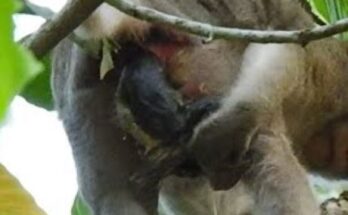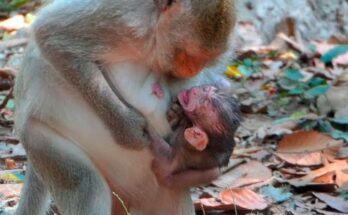Baby monkeys in the jungle face a perilous start to life. Born into an environment teeming with predators, hazards, and social challenges, their survival depends on a combination of innate instincts, maternal care, and a bit of luck. Among the most pressing dangers are the threats posed by predatory animals such as snakes, birds of prey, and large carnivores, all of which see vulnerable baby monkeys as easy targets.
However, one of the lesser-known threats comes from within their own communities. In many primate species, social hierarchies play a crucial role in determining access to resources like food and safe resting spots. Unfortunately, these dynamics can sometimes lead to bullying or aggressive behavior, especially toward weaker or lower-ranking members of the group. Baby monkeys, being small and inexperienced, often fall victim to these interactions. Dominant individuals or even juvenile monkeys may harass or bully them to assert their status or vent frustrations.
Additionally, the jungle itself is an unforgiving environment. Baby monkeys, eager to explore and play, can sometimes wander into dangerous areas, falling from trees or encountering sharp thorns, poisonous plants, or territorial animals. Their playful curiosity, while essential for learning and development, often puts them at risk.
Despite these challenges, baby monkeys have an incredible will to survive. Their mothers are typically their first line of defense, fiercely protective and attentive to their needs. In some cases, the entire group may step in to shield the young from threats. Through their trials, baby monkeys gradually develop the skills and social acumen needed to navigate the complexities of jungle life. While the dangers they face are daunting, these experiences ultimately shape them into resilient and resourceful adults.


